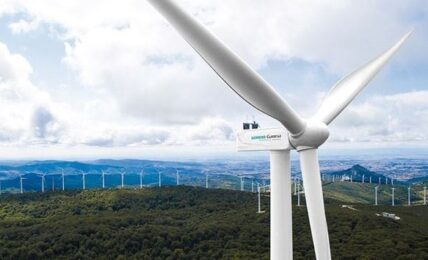Public and large private companies in Singapore will be required to provide climate-related disclosures aligned with the IFRS’ newly published ISSB disclosure standards, according to a proposal by Singapore’s business reporting, accounting and corporate services and markets regulators Accounting and Corporate Regulatory Authority (ACRA) and Singapore Exchange Regulation (SGX RegCo).
The plan for mandatory climate-related reporting was recommended by the Sustainability Reporting Advisory Committee (SRAC), jointly launched by the regulators last year to advise on a sustainability reporting roadmap for Singapore companies.
According to a statement by the regulators, the proposal for mandatory climate reporting aims to maintain Singapore’s position as a global business hub, while also contributing to the Singapore Green Plan 2030, the government’s sustainable transition strategy aimed at strengthening Singapore’s commitment to the UN’s 2030 Sustainable Development Agenda.
ACRA Assistant Chief Executive Kuldip Gill said:
“Trusted and consistent climate reporting is essential to drive accountability and decisive actions by companies. It will also rally companies towards contributing to Singapore’s net zero emissions commitments, expediting our transition to a green economy.”
Currently, Singapore only requires listed companies in select sectors including finance, agriculture, food, forest products and energy to provide TCFD-aligned climate reporting, with all other listed issuers required to apply TCFD on a ‘comply-or-explain’ basis.
Under the new proposals, all listed issuers, including those incorporated overseas, as well as business trusts and REITs, would be required to report climate-related disclosures beginning in fiscal year 2025, with non-listed companies with at least $1 billion in revenues beginning in FY2027.
The regulators added that they plan to conduct a review in 2027 on plans to extend the climate disclosure requirements to non-listed companies with revenues of at least $100 million, with reporting to begin around FY2030.
Michael Tang, Head of the Sustainable Development Office, SGX RegCo, said:
“SGX-listed companies have been at the forefront of sustainability reporting. That Large Non-Listed Companies should start climate reporting will complement the progress of listed companies. As a whole, these efforts create a virtuous cycle of lifting standards all round and enabling Singapore corporates to make an outsize contribution towards global sustainability.”
The committee recommended that companies’ reporting mirror the requirements in the International Sustainability Standards Board (ISSB) standards, with additional reliefs on complex disclosures such as additional time to implement Scope 3 emissions reporting. The ISSB released the finalized versions of its new sustainability and climate-related reporting standards earlier this week.
The recommendations also propose requiring external assurance on Scope 1 and 2 GHG reporting, beginning in FY2027 for listed issuers and FY2029 for large private companies.
SRAC Chairperson Esther An said:
“With more countries pledging for net zero and the rising carbon cost globally, climate strategy and reporting can help companies, listed or non-listed, to mitigate and adapt to risks in the transition to a low carbon economy. What gets measured gets managed. There is a strong business case for climate reporting as it has helped many businesses to improve performance and create stronger competitive advantage by capturing growth opportunities.”
The regulators have launched a consultation into the new mandatory climate-related reporting rules, which will remain open until September 30. Click here to access the consultation.
The post Singapore Proposes Mandatory Climate Reporting for both Public and Private Companies first appeared on ESG Today.
The post Singapore Proposes Mandatory Climate Reporting for both Public and Private Companies appeared first on ESG Today.


